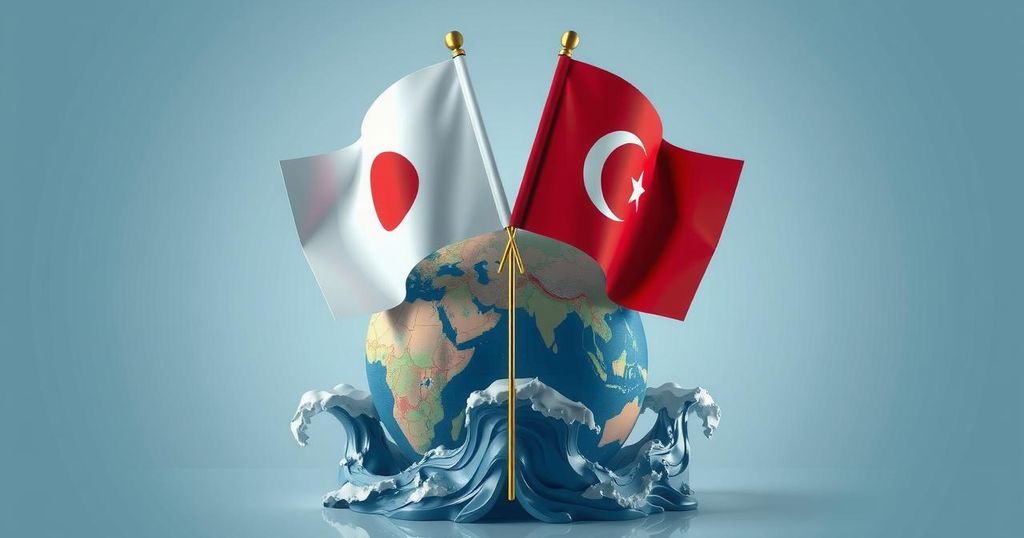Team Nigeria’s success at the Invictus Games was overshadowed by the visa denial of Chief of Defence Staff Christopher Musa by the Canadian High Commission, sparking outrage among Nigerian officials. The incident reflects deeper diplomatic weaknesses and challenges Nigeria faces on the international front, particularly regarding human rights issues. President Bola Tinubu’s lack of effective diplomatic appointments further complicates Nigeria’s global standing. The situation may, however, serve as an opportunity for Nigeria to refocus its priorities and strengthen its leadership amid ongoing security challenges.
The Invictus Games concluded on February 16, showcasing Team Nigeria, which celebrated a number of victories, including one gold medal. However, the success was marred by the denial of a visa to Chief of Defence Staff Christopher Musa by the Canadian High Commission. This incident provoked hostile reactions from Nigerian officials, with National Security Adviser Nuhu Ribadu bluntly stating that Canada could “go to hell” in response to the affront felt by Nigeria.
The Canadian High Commission refrained from commenting on specific visa cases, citing privacy concerns, yet this diplomatic incident was deemed unnecessary. The Invictus Games, initiated by Prince Harry in 2014, aim to honor injured military personnel through competitive sports, providing them with an opportunity for healing. Nigeria was the sole African nation represented at this seventh iteration of the games in Canada, yet the CDS was unable to lead the delegation due to the visa issue.
Musa expressed concern over the reasons for the visa denial, noting that Nigeria had followed all proper procedures. He insisted that the issue warranted attention from all levels, emphasizing that Nigeria deserves due respect as a nation. Unfortunately, developed nations often make policy decisions independently of how a country perceives itself and focus primarily on their strategic interests.
Notably, two weeks prior to the visa debacle, the Canadian government empowered its immigration officers with the authority to revoke temporary resident documents under unspecified conditions, hinting at a stricter immigration policy. President Bola Tinubu’s recent diplomatic missteps can exacerbate these tensions, as he recalled ambassadors in September 2023 without replacements. This oversight damages Nigeria’s diplomatic relationships, as historical precedent suggests that efficient diplomacy hinges on the active engagement of ambassadors and emissaries.
In previous encounters, such as when Nigeria’s national football team faced challenges due to a lack of diplomatic representation, it is apparent that these appointments are crucial for effective negotiation and resolution of conflicts. It is perplexing that President Tinubu positions himself as the sole representative of Nigeria on the global stage, particularly when government ministries cannot replicate the role of an embassy.
Moreover, the treatment of citizens by a nation significantly influences its international standing. Nigeria’s poor human rights record, highlighted by military actions against civilians, undermines its global reputation, diminishing respect from other countries. Such actions raise concerns about the country’s adherence to laws and human rights.
Reflecting on Musa’s visa denial, this incident may present an unexpected advantage, as Nigeria grapples with significant security challenges requiring its top military leadership at home. Furthermore, Canada’s refusal has inadvertently spared Nigeria the expense of sponsoring a larger, less efficient delegation.
In summary, the visa denial experienced by Chief of Defence Staff Christopher Musa has uncovered significant issues within Nigeria’s diplomatic relations and highlighted the necessity for a proactive foreign policy. While Team Nigeria achieved notable success at the Invictus Games, the incident serves as a reminder of the paramount importance of strong diplomatic representation. Furthermore, addressing human rights concerns is crucial for improving Nigeria’s standing on the world stage. Ultimately, these factors underscore the urgent need for a renewed and strategic diplomatic approach to avoid further humiliating situations.
Original Source: punchng.com






